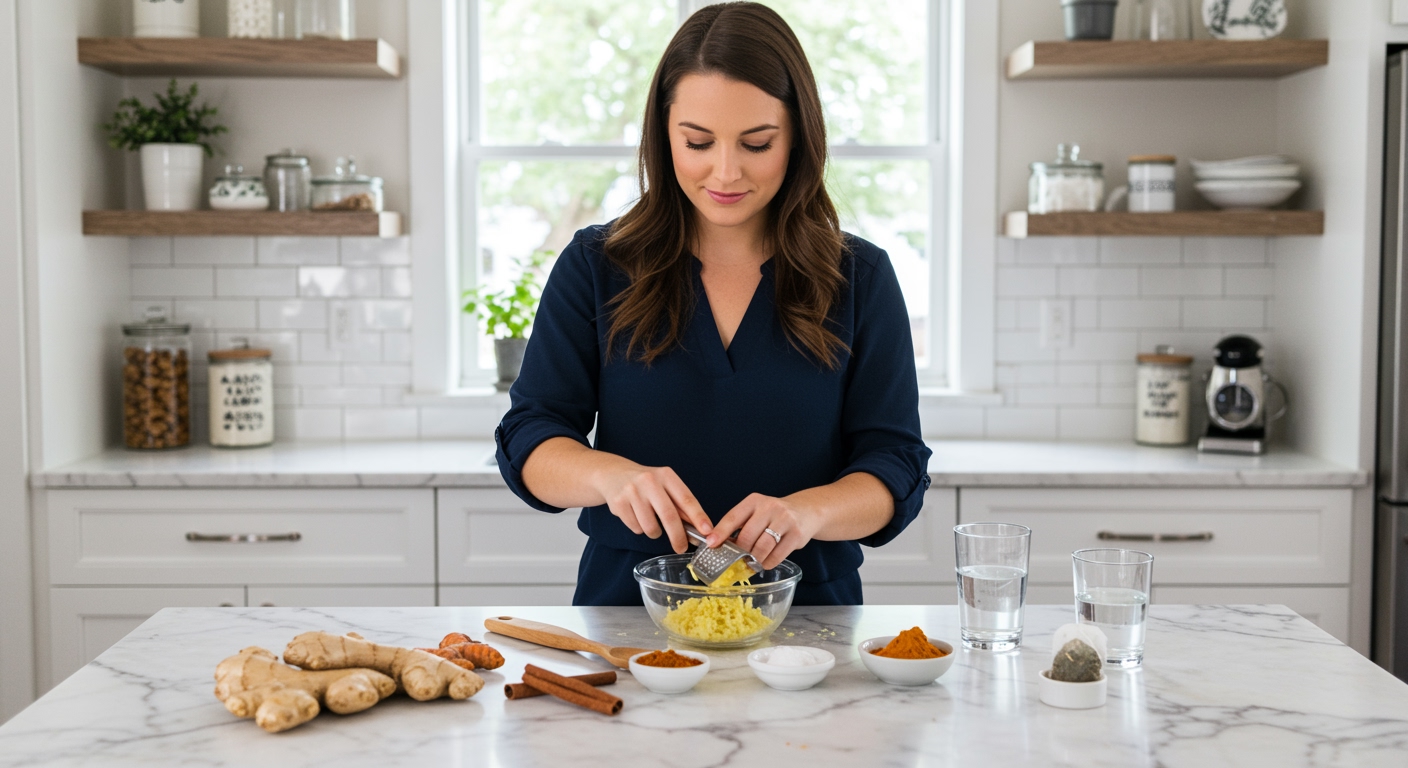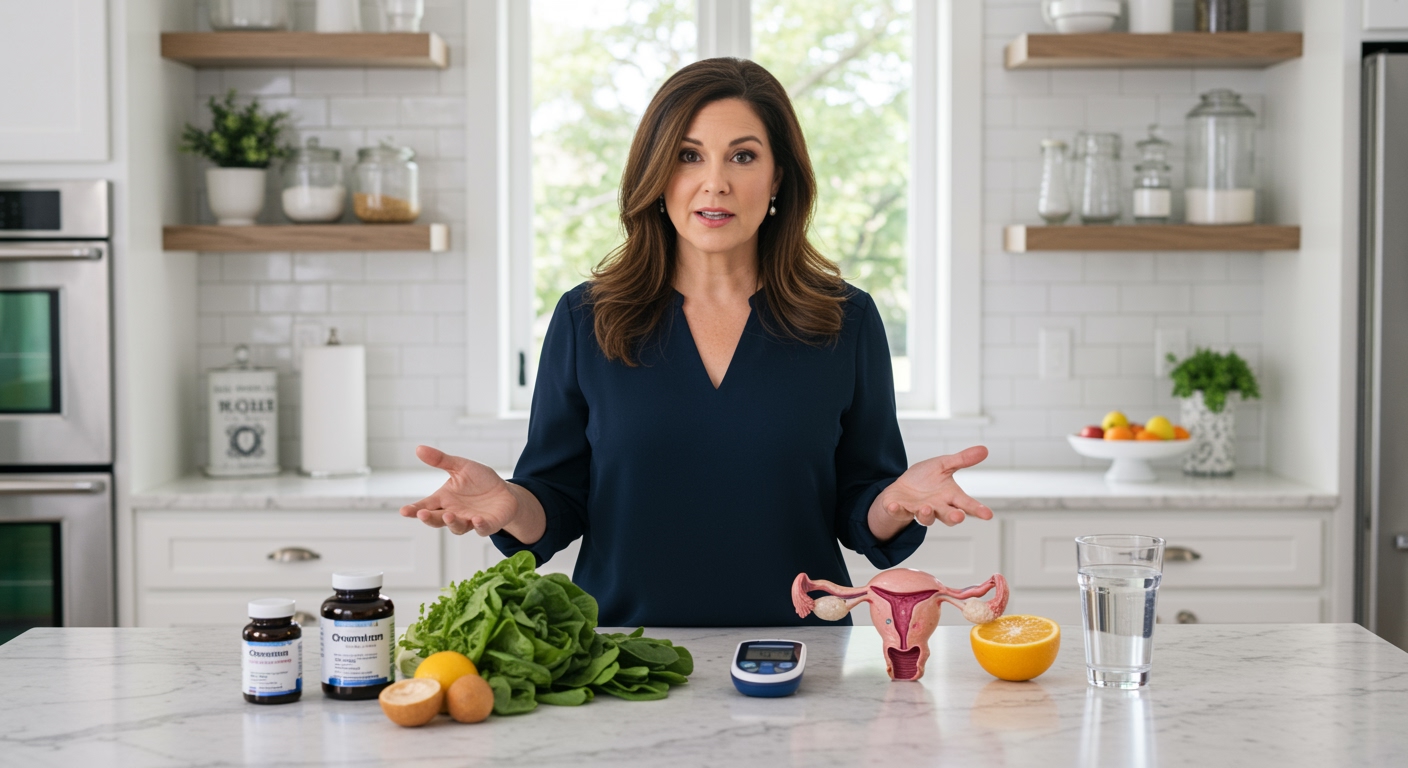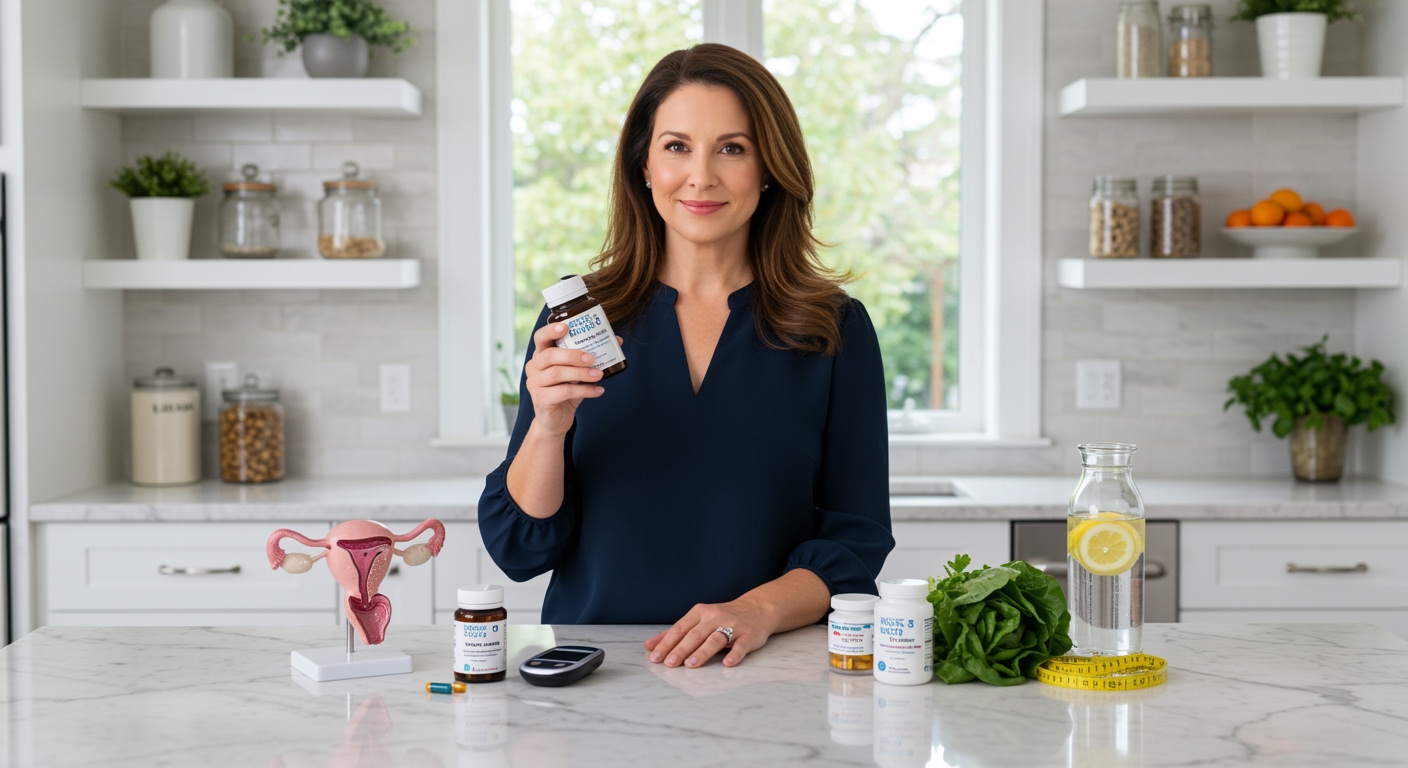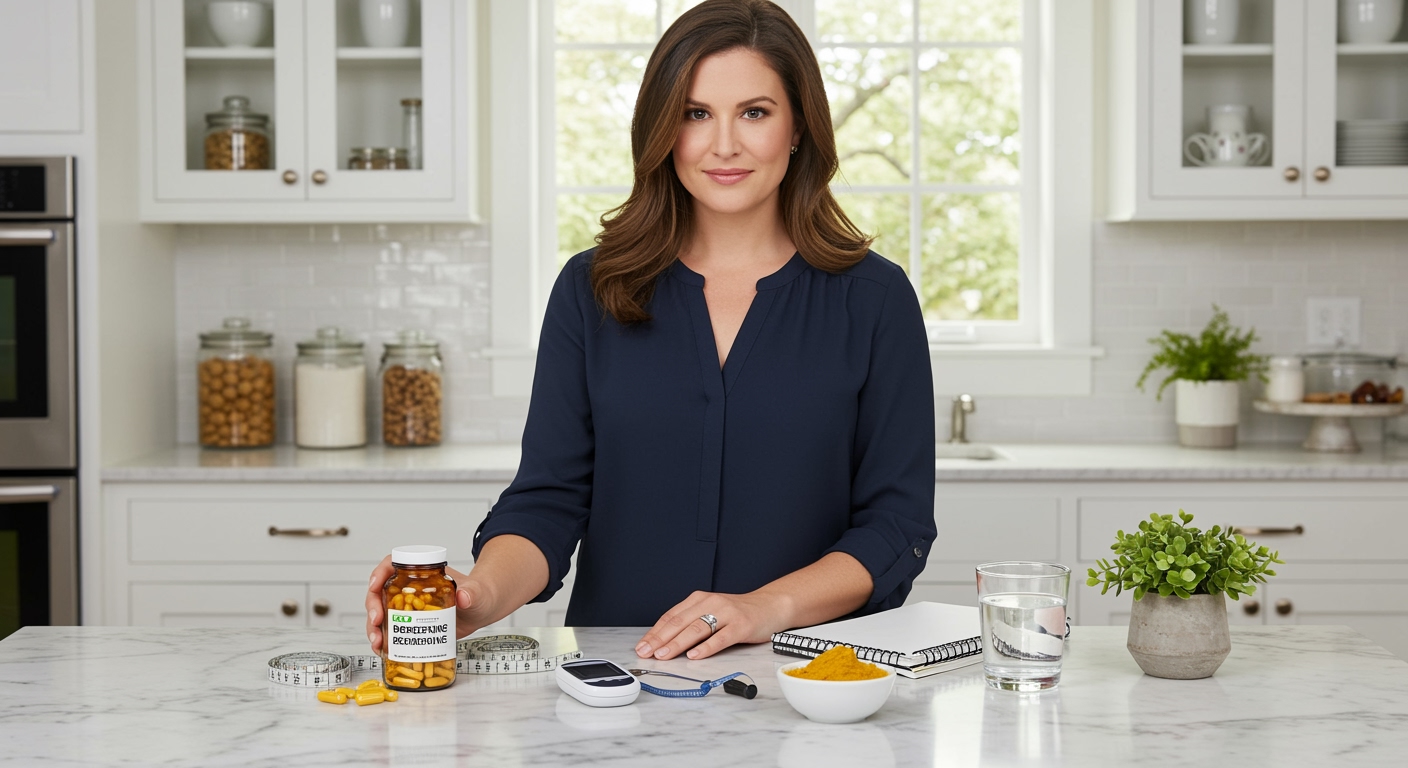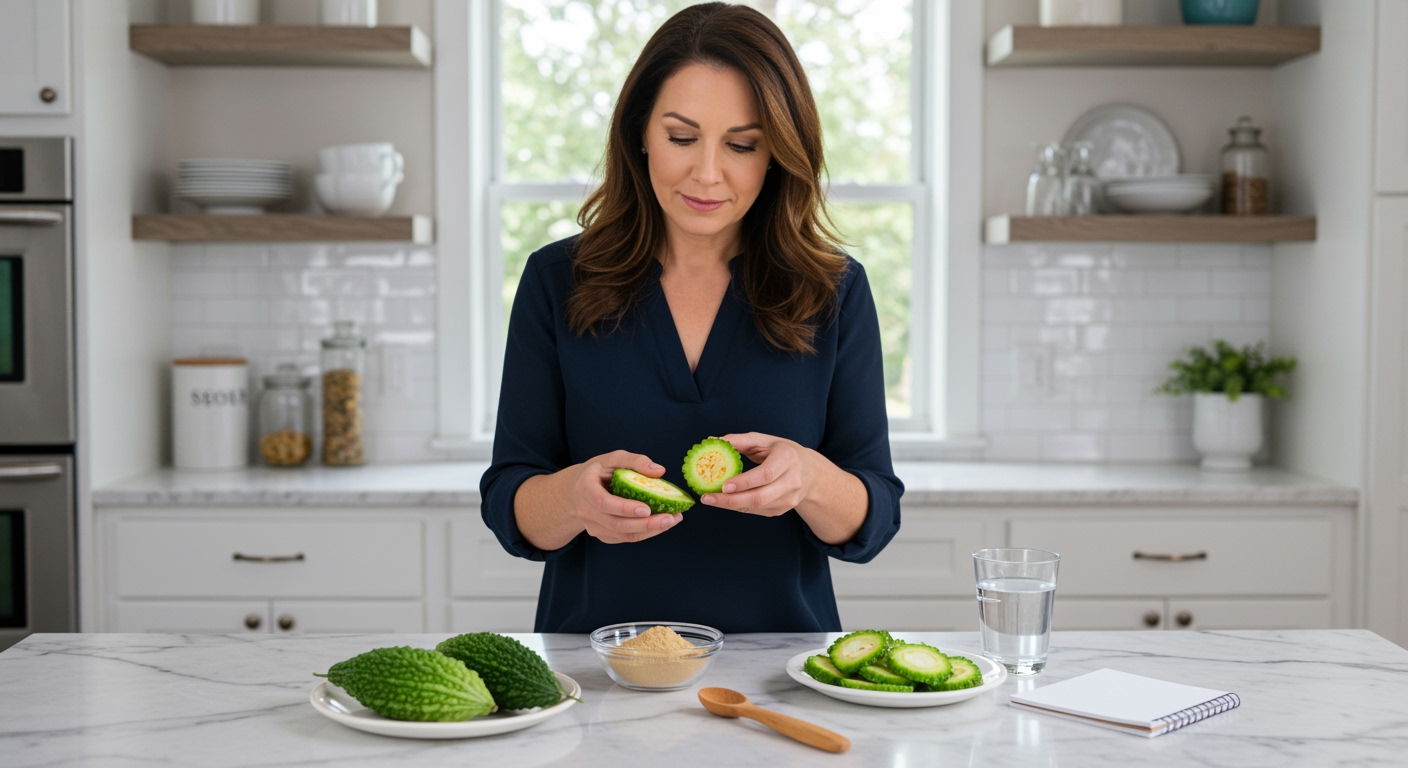✪ Key Takeaway: Ginger reduces PCOS inflammation and insulin resistance through powerful compounds like gingerol and shogaol.
Introduction
You reach for ginger when your stomach feels upset, but this golden root might be your secret weapon against PCOS too.
Women with PCOS often struggle with chronic inflammation, insulin resistance, and hormonal imbalances that make daily life challenging.
Hi, I’m Abdur, your nutrition coach and today I’m going to explain how ginger can naturally support your PCOS management through science-backed mechanisms.
How Does Ginger Fight PCOS Inflammation?
PCOS creates a state of chronic low-grade inflammation throughout your body.
This inflammation disrupts your hormone production and makes insulin resistance worse.
Ginger contains powerful anti-inflammatory compounds called gingerols and shogaols.
These compounds block inflammatory pathways by inhibiting cyclooxygenase enzymes and reducing pro-inflammatory cytokines.
Research shows ginger can reduce inflammatory markers like C-reactive protein by up to 40 percent in women with PCOS.
Lower inflammation means better hormone balance and improved insulin sensitivity.
✪ Fact: Fresh ginger contains higher levels of gingerol than dried ginger powder.
Can Ginger Improve Insulin Sensitivity?
Insulin resistance affects up to 80 percent of women with PCOS.
Your cells become less responsive to insulin, causing blood sugar spikes and increased fat storage.
Ginger activates AMPK pathways in your muscle and liver cells.
AMPK is like a metabolic switch that tells your cells to burn glucose more efficiently.
Studies show ginger supplementation can reduce fasting blood sugar by 10-15 percent in women with PCOS.
Better insulin sensitivity means easier weight management and reduced diabetes risk.
Your body starts using stored fat for energy instead of constantly storing more.
✪ Pro Tip: Consume ginger with meals to maximize its blood sugar stabilizing effects.
Does Ginger Balance Hormones Naturally?
PCOS disrupts your hormone production in multiple ways.
High insulin levels trigger your ovaries to produce excess testosterone.
Ginger helps break this cycle by improving insulin sensitivity and reducing inflammation.
Lower insulin means your ovaries produce less testosterone naturally.
Research indicates ginger may also support healthy luteinizing hormone levels.
This hormone is crucial for regular ovulation and menstrual cycles.
✪ Note: Hormone changes from ginger typically take 2-3 months to become noticeable.
What Is The Best Way To Use Ginger For PCOS?
Fresh ginger provides the highest concentration of active compounds.
Aim for 1-2 grams of fresh ginger daily, which equals about one thumb-sized piece.
You can grate it into smoothies, steep it as tea, or add it to stir-fries.
Ginger tea works especially well because hot water extracts more bioactive compounds.
Combine ginger with cinnamon and green tea for enhanced anti-inflammatory effects.
Take ginger with meals to maximize its blood sugar benefits and reduce digestive irritation.
Start with smaller amounts and gradually increase to avoid stomach upset.
✪ Pro Tip: Store fresh ginger in the freezer to make grating easier and preserve potency.
Are There Any Side Effects To Consider?
Ginger is generally safe for most people when used in culinary amounts.
Some women experience mild stomach irritation when consuming large amounts on an empty stomach.
Ginger can enhance the effects of blood-thinning medications like warfarin.
If you take diabetes medications, monitor your blood sugar closely as ginger may lower glucose levels.
Pregnant women should limit ginger intake to less than 1 gram daily.
Always consult your healthcare provider before adding therapeutic amounts of ginger to your routine.
✪ Note: Stop ginger supplementation at least two weeks before any scheduled surgery.
The Bottom Line
Ginger offers genuine benefits for PCOS management through its powerful anti-inflammatory and insulin-sensitizing properties.
Small daily changes with whole foods like ginger create lasting health transformations over time.
I would love to hear about your experience with ginger for PCOS or any questions you might have in the comments below.
References
At NutritionCrown, we use quality and credible sources to ensure our content is accurate and trustworthy. Below are the sources referenced in writing this article:
- International Journal of Reproductive Medicine: Ginger Extract Effects on PCOS
- Frontiers in Nutrition: Ginger and Metabolic Health
- PubMed: Anti-inflammatory Effects of Ginger
- Wiley Online Library: Ginger Supplementation in PCOS
